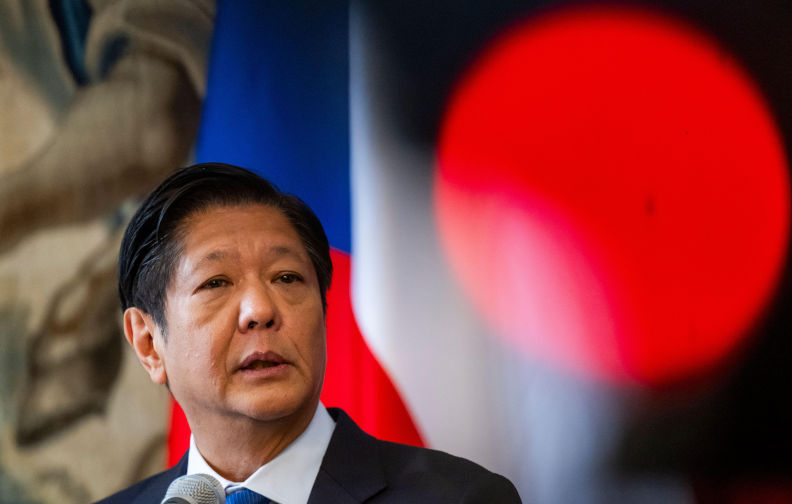Informed observers are amazed that the blackened legacy of Ferdinand E. Marcos has been sanitised to such an extent that his only son Bong Bong Marcos could become the 17th elected president of the Philippines in June 2022. Who on earth can take the Philippines seriously ever again?
One such observer is Australian journalist Keith Dalton whose book Reinventing Marcos: From Dictator to Hero was reviewed in January 2025 by Graeme Dobell in the periodical Inside Story. Dalton claims that the Philippines was Marcos’s fiefdom which he meticulously, systematically, corruptly and brutally controlled.
He ruled with an iron grip; embezzled an estimated US$10 billion; looted the treasury; oversaw the rewriting of the constitution to suit his political ends; stacked government agencies with political and military mates; he oversaw a system of crony capitalism that generated wealth and created monopolies for his family and friends.
All true enough. Also true that Marcos was guilty of extra-judicial killings of the so-called civilian desaparecidos, but not nearly as many as those of a later president, Rodrigo Duterte (2016-2022) in his vicious ‘war on drugs’.
But for the 21 years of his presidency (1965 to 1986), Ferdinand Marcos ran a skilful propaganda machine. He embellished his reputation as the most widely decorated veteran of the Philippines in World War Two (a claim regarded as rubbish by US military archivists), and otherwise camouflaged many of his unsavoury activities. He skilfully named his harsh martial law rule from 1972 to 1981 ‘Constitutional Authoritarianism’ under his Kilusang Bagong Lipunan, (New Society Movement).
He claimed he was all for land reform, which the World Bank loved, but which was in many cases an elaborate front to reassign land held by sugar barons to some of his mates.
He negotiated with Muslim rebels in Mindanao – the Moro National Liberation Front – for peace and had regular televised weapon-surrendering ceremonies at Malacañang Palace. But they were ritualistic events, after which the Moros simply dug up other weapons they had cached.
Marcos also courted foreign aid for infrastructural improvements, especially for agriculture, of which Australia’s road-building and stock improvement project in Pagadian in Zamboanga del Sur was a good example.
Like a number of young diplomats in Manila in the late 1970s, I was not fooled by Marcos’s double standards, and wrote a draft despatch for my ambassador entitled His, Hers and Theirs. But he refused to acknowledge Marcos’s flaws and consigned my effort to his waste paper bin.
Along with many other heads of missions at the time, my ambassador was also charmed by Imelda Marcos and spoke admiringly of her ‘Love buses’, her Heart Foundation and brutalist Cultural Centre built on reclaimed land on Manila Bay along Roxas Boulevard. Imelda’s cloying sentimentality, her careful construction of a rags to riches narrative, her patronage of the arts, and her courting of foreign celebrities obscured an uglier reality of complicity with her husband’s criminality. She was once quoted saying ‘Perception is real. The truth is not’.
The regional economic collapse in 1983 put a dent in Marcos’s reputation for economic management, a dent that deepened with the assassination of Ninoy Aquina at Manila Airport the same year. The Marcoses were widely suspected of initiating or at least being complicit in Aquino’s assassination. Their reputational slide continued when snap elections in 1986 were widely suspected of being subject to electoral fraud.
Rapidly expanding public indignation about Marcos found expression in the Peoples Power Revolution. With guidance from the politically astute Cardinal Jaime Sin and reinforced by an Army revolt, the Revolution swept Marcos from power on 24 February 1986. President Ronald Reagan sent a helicopter to drag the whole reluctant Marcos clan, booty and all, out of Manila, first to Clark Base in Angeles City, thence to Hawaii, where he died in 1989. He was survived by wife Imelda, son Bong Bong (Ferdinand jr.) and daughters Imee, Aimie and Irene.
Why did such white-hot public indignation with Ferdinand Marcos not prevent his son from becoming a later president of the Philippines? After all, he was no genius, nor did he have his father’s charisma.
Bong Bong failed to graduate from a private school in England, then Oxford and then the Wharton School of Business at the University of Pennsylvania. No doubt benefitting from his father’s reputation, he served as governor of the Marcos home state of Ilocos del Norte. He became a member of the House of Representatives, then the Senate. He was defeated when running for vice president in 2016 by Leni Robredo before successfully becoming the country’s 17th president in elections in 2022.
Several factors were at play here. In 1991, Ferdinand Marcos’s successor, Corizon Aquino, widow of Ninoy, allowed the Marcos family to return to the Philippines. Bong Bong then got into politics. In public he talked repeatedly about his father’s ‘golden age’, labelled his alleged corruption as ‘disinformation’. He steadfastly stood against any suggestion that there should be a judicial review of Ferdinand’s presidency.
Then the lapse of time since Marcos senior’s presidency worked in Bong Bong’s favour. Six presidents were elected between his father’s term and his own – a gap of 36 years. And by the early 2020s, 56 percent of the electorate were aged between 18 and 41 with no direct experience or memory of martial law, or of the 1986 Peoples’ Uprising.
Two generalised characteristics of Philippine society are said to be forgetfulness and forgiveness, the latter due in part to strong Catholic Christian principles. This explains why, despite convictions on two counts of criminal corruption committed in 1993, and seven later convictions of graft, each worthy of 11 years in prison, Bong Bong’s mother Imelda has always avoided serving time in prison.
Another factor in Bong Bong’s success has been his hawkish foreign policy towards China, a factor that has brought the United States on side. Major US bases at Clark and Subic Bay have been re-opened and extended since the Pinatubo volcanic eruption in 1991, and Bong Bong has been eager to engage his modernised navy and air force in multi-nation exercises arranged by Washington to contain China. 2024 saw the eighth iteration of naval exercises involving forces from the Philippines, Australia, Japan, France, the UK and Canada.
Well-known Philippine academic Walden Bello recently prophesied that the people will eventually tire of the regimen of corrupt dynastic politics inflicted on them, and elect instead principled politicians like Senator Risa Hontiveros who successfully took on the Philippine Offshore Gaming Operation run by Chinese criminal gangs and got an apology from President Duterte for his extra-judicial killings. Maybe an unrealistic hope, but we’ll see.
Richard Broinowski AO is a former Australian diplomat, general manager of Radio Australia and adjunct professor at the Universities of Canberra and Sydney. He has published eight books, the latest being an expansion of his 2003 book Fact or Fission – the truth about Australia’ nuclear ambitions. The later edition includes extra chapters on Australia’s intention to acquire nuclear-powered submarines. (Scribe 2022).

